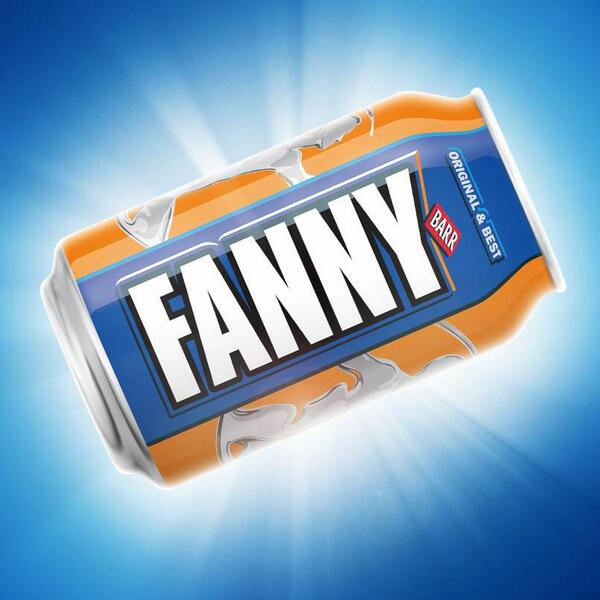The Limbo Ads: How low can you go?
When does innuendo reach a crescendo? When does tongue-in-cheek become foot-in-mouth? When some months ago I was introduced to the energy drink known as “Pussy”, I thought that this was unique; a soft drink with a name open to interpretation as either something innocuous – a cat – or a woman’s private parts. The strap tells me that the “The drink’s pure. It’s your mind that’s the problem.” Oh, sorry my fault. Close to the knuckle? Definitely. Eye catching? Certainly. Unique? Well apparently not.

Image taken from The Drum website
Say hello to ‘Fanny’, the new name for IrnBru. Wow. So that’s two soft drinks in the borderline-offensive, feminine niche. It’s a tight spot to be sure. Adherents of IrnBru can claim that this works on more than one level – that Fanny is not only anatomically rude, but also a colloquial pejorative, especially north of the border. There is currently a further dig at Coke who are naming bottles after people and Fanny is after all a girl’s name, albeit rather underused these days. It kind of works – more so if you’re Scottish, according to the social networks.
You need only think of Carry On films and naughty seaside postcards to know that many Brits have found a risque humour amusing over the years. Pussy founder Jonnie Shearer says he was inspired originally by Richard Branson’s Virgin brand when he came up with the brand name while he was unemployed, but the smart money says that in his ample free time he saw an episode of 70’s sitcom ‘Are You Being Served’ and named it after Mrs Slocombe’s pet cat.
So who else has fished in the gutter for an attention-catching brand name? Cider manufacturers seem to be ahead of the game with Cripplecock and Crippledick ciders, though there is perhaps more of a suggestion of an animal connection and they steer you that way with a picture of a chicken on the bottle. Wine manufacturers are even more shameless with names like Jealous Bitch, Tasty Bitch and Ball Buster. The attraction for brands is simple; provided your target audience isn’t too squeamish, you get an memorable name, an implication that this is a fun product whose manufacturers don’t take themselves too seriously – which many consumers will warm to – and people know that being seen drinking or using this funny risque brand will rub off on them; they’re seen to be in on the joke. Of course if the name is really rude, as with Pussy and Fanny, then you’ve got headlines too.
But where do you draw the line? The thing is that words in the English language have been expropriated for sexual and other purposes for years and any adult will know dozens of words for sexual parts and acts which started off with completely innocuous meanings. If you start banning a word as soon as one person applies a rude meaning to it then it would become ridiculous. Think of Flintshire County Council’s decision to replaced ‘Spotted Dick’ with ‘Spotted Richard’ in their canteen. Barking. The reader must surely take a large share of responsibility for their interpretation of any given word or phrase, or as the makers of Pussy would say: “It’s your mind that’s the problem.”
